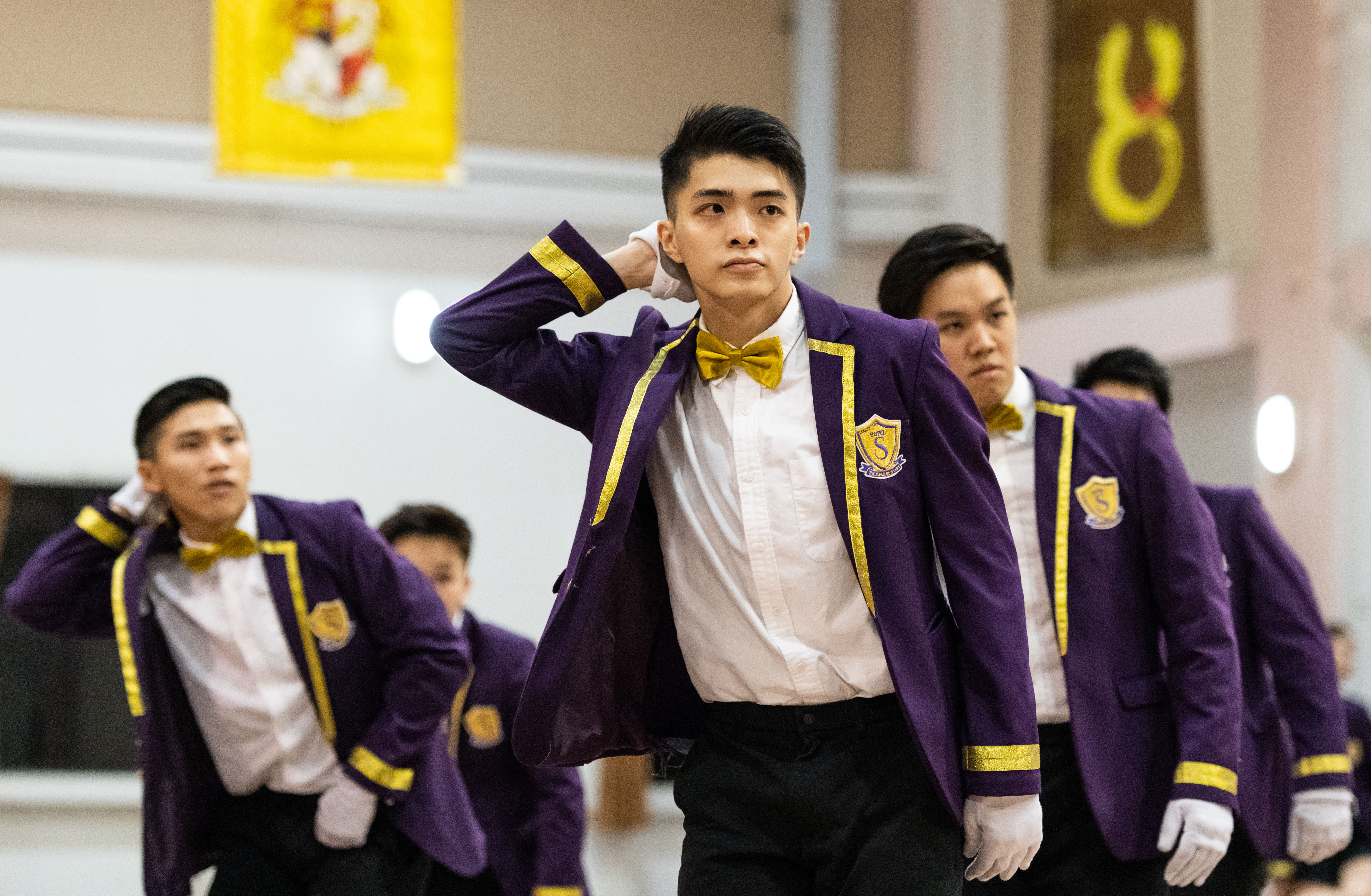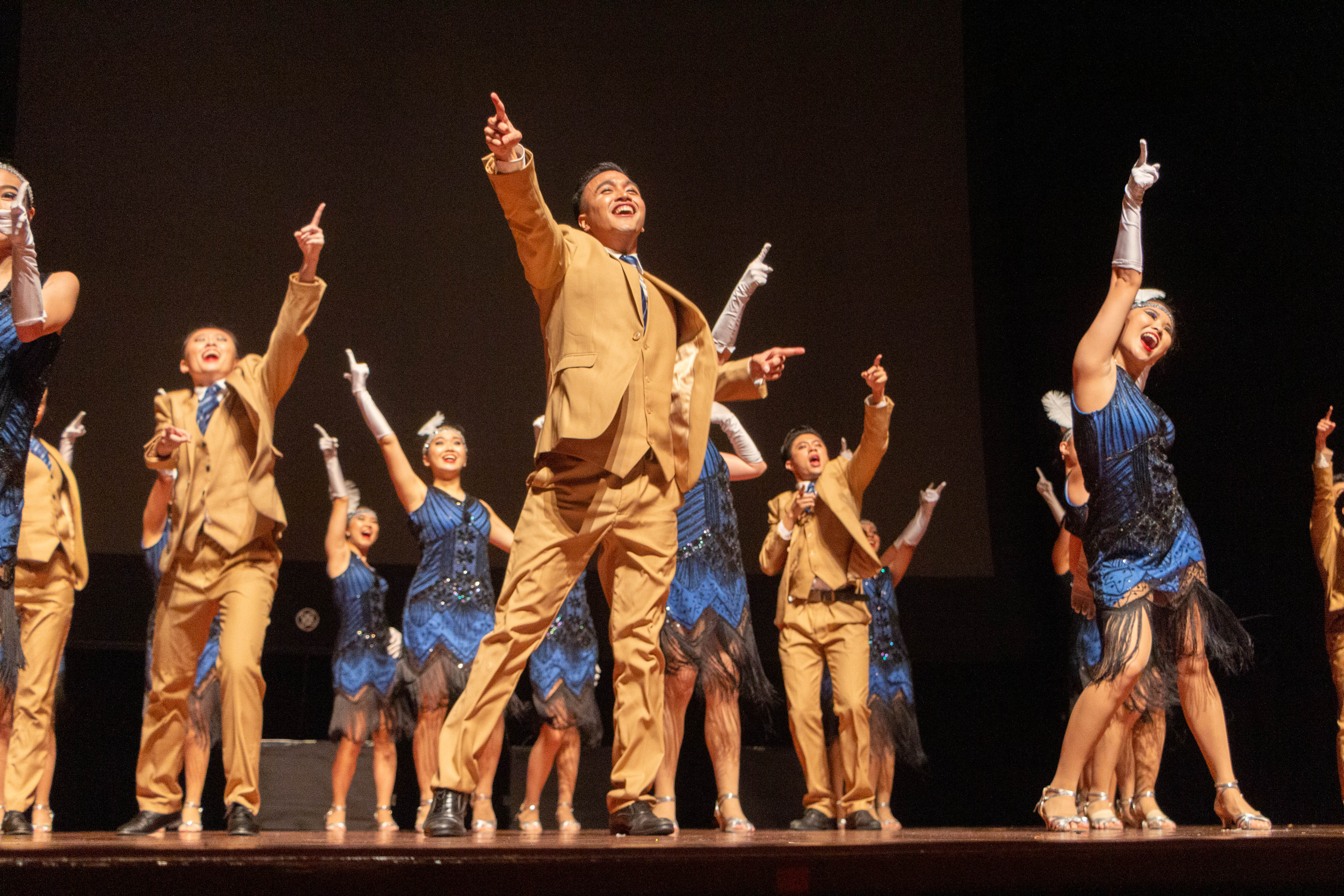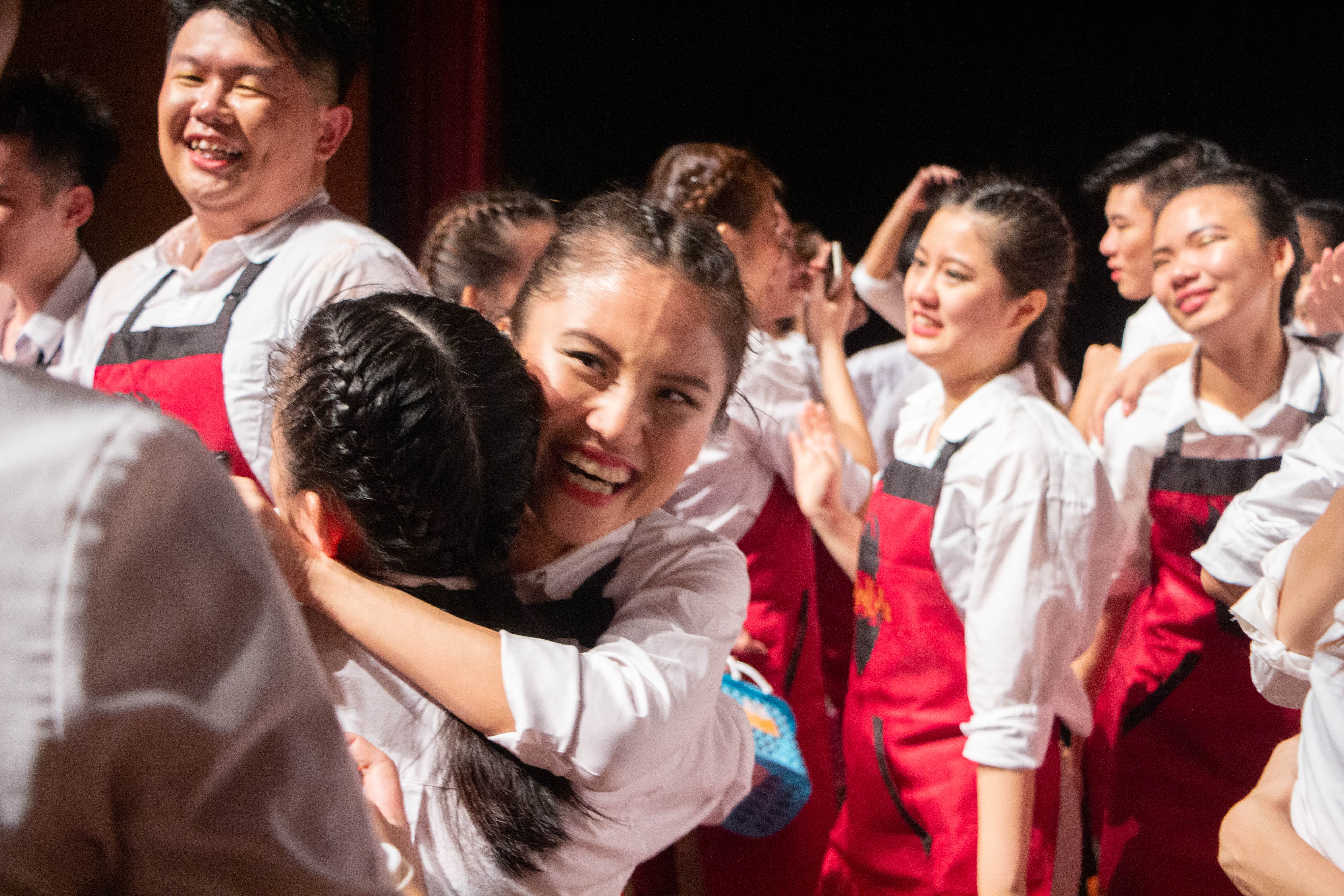The final dance
18 Mar 2019
By Krishveen Kaur
 Ang Wei Qing, 24, performs a dance routine with his team, at a showcase held at Hall of Residence 8’s multi-purpose hall on 26 Feb. PHOTO: JOEL CHAN
Ang Wei Qing, 24, performs a dance routine with his team, at a showcase held at Hall of Residence 8’s multi-purpose hall on 26 Feb. PHOTO: JOEL CHAN
A day after winning the annual Hall Olympiad Closing Ceremony (HOCC) dance competition, Nabeel Azhar, a final-year student at the School of Social Sciences, was not celebrating his victory.
Instead, he spent his time rushing to submit his final-year project due that day.
The last three months had been a gruelling challenge for this Hall of Residence 16 resident juggling intensive rehearsals for HOCC while working on his sociology thesis meant that Nabeel only slept two hours or less every day.
But this was not the first time the 25-year-old had gone through such trying times.
For him and some other final-year students, this was an annual routine that they chose to go through for the last four years.
Painful but rewarding experience
Nabeel stumbled across dance in his freshman year.
“I didn’t have the intention to dance,” said Nabeel, who had no prior dance experience. “I just wanted to study.”
But after watching just one dance practice session during the hall’s Freshmen Orientation Programme, he was drawn in.
“There was no turning back. My passion for dance was ignited,” added Nabeel.
Nabeel recalls how dance quickly became part of his daily routine.
“I would imagine myself dancing to steps in my sleep, even on days when I didn’t have practice,” he said.
From then on, Nabeel pursued his interest in dance actively. Besides being part of his hall dance team, he also joined the MJ Hip Hop Dance Club, and took part in their competitions.
But in his third year, Nabeel’s dance journey met with a demoralising turn.
He tore two ligaments in his left knee while playing football one weekend, forcing him to withdraw from HOCC.
“I planned not to go for an overseas exchange in the second semester of my third year, so that I could dance for HOCC.
But the injury occurred in January, so I had to sit out for that competition as well as my performances for the MJ Hip Hop club,” said Nabeel.
He had to be on crutches for two months after his surgery in January last year. “It was a real torture,” said Nabeel, who also plays football and sepak takraw for his hall.
“I went from being so active to just sitting around and watching others dance during practice.”
But the experience taught him not to take simple things, like walking and running, for granted. “It pushed me to gain the mental resilience to go through any struggle,” he said.
Even though Nabeel was not able to dance with his team in his third year, he helped out in other ways, such as managing the lighting for his hall’s dance items on the day of the competition.
“I wanted the dancers to have peace of mind, knowing that the lighting guy was someone who was familiar with their dance routine,” he said.
After his recovery, Nabeel returned to dance, despite the risk that he might injure himself again. “I just continued because my passion made me want to take the risk again,” he said.
Nabeel and his dance team from Hall 16, Strawberry Stretch, were crowned champions in this year’s HOCC, but the dancer remains humble.
“I’m proud that we managed a good performance,” he said.
“Results were always secondary to us, but winning was a nice bonus,” he added.
 From left: Nabeel Azhar, 25, shares the stage with his dance team, Strawberry Stretch, at the Hall Olympaid Closing Ceremony earlier this month. His team went on to clinch first place. PHOTO: AUDREY LEONG
From left: Nabeel Azhar, 25, shares the stage with his dance team, Strawberry Stretch, at the Hall Olympaid Closing Ceremony earlier this month. His team went on to clinch first place. PHOTO: AUDREY LEONG
A safe space for new dancers
Nur Liyana began her competitive dance journey with Soulmix, the dance team of Hall 10, in her first year at NTU.
“I’ve always wanted to try hip-hop dancing since I was in primary school, but I never had the opportunity, up until university,” said the final-year student from the School of Physical and Mathematical Sciences.
Like Nabeel, it was Liyana’s first time dancing on stage during HOCC four years ago, and she struggled to keep up with other dancers in her team who were more experienced.
“I was a mess even after putting in so much effort dancing for three months,” said the 23-year-old. “It was nerve-racking to start at such an age as compared to those who already had experience.”
Furthermore, Liyana faced some negativity from her peers who could not understand why she was putting so much time into dance.
“I had some fallouts with friends back in my first year due to this competition. Most of my friends were not as supportive as I was hoping them to be, ” she said.
But she was thankful for her dance seniors who created a nurturing environment for her to develop as a first-time dancer.
“They were very patient with my awkward movements and lack of body awareness in the beginning. Furthermore, we did not hire any external choreographers to teach us the basics, so I really had to start from scratch and learn from my seniors and on my own,” said Liyana.
Her seniors also advised her on how to manage her workload while participating in HOCC.
“I was struggling in the first semester of school. So they advised me to take more modules in semester one and less in semester two so that I could spend more time dancing,” she said.
“Going through these difficulties knowing that I could count on my seniors for advice really made the journey worthwhile,” added Liyana, who is now a dance senior herself in Soulmix.
In the latest competition season, Liyana missed the first month of intensive dance training for her final year in HOCC, due to her winter exchange programme last December.
Despite this, she did not back down from the opportunity to represent her hall in HOCC for the last time.
“I wanted to dance with my team for the last time to carry on the culture that my seniors had provided for me.” she said.
“That is, providing a safe space for new dancers like myself to enjoy dancing.”
Liyana’s team placed third in this year’s HOCC, jumping a place from four years ago when they placed fourth.
“As a senior now, I relay the same advice I received as a freshman from my seniors down to my freshies.
“But the most important thing I tell them is that, you dance for the people beside you and not the audience.
“Because when all the dancers are carrying out the steps in harmony, the audience will be able to feel their synergy naturally,” she said.
 Nur Liyana, 23, hugs a dancer from her team, after receiving third place at the Hall Olympiad Closing Ceremony dance competition earlier this month. PHOTO: AUDREY LEONG
Nur Liyana, 23, hugs a dancer from her team, after receiving third place at the Hall Olympiad Closing Ceremony dance competition earlier this month. PHOTO: AUDREY LEONG
Lessons in managing time and people
Ang Wei Qing first started dancing when he was 17. Watching a neighbour’s dance performance had sparked his interest, and he spent the next five years joining different external dance crews.
But it was not until he entered university, that he truly had a fulfilling dance experience.
Now, 24-year-old Ang is a final-year student at the School of Social Sciences, with considerable experience as a choreographer and captain for his hall’s dance team, and school’s MJ Hip-Hop Dance Club.
Ang said he gained fulfilment from overcoming several dance-related challenges over the years.
He recalled his first role as a choreographer for the Hall 8 dance team, Srethgie, in his second year, after participating as a dancer in his first year.
With little prior experience in choreographing, this proved to be a steep learning curve for him.
“It was really stressful because I didn’t have much experience and I was suddenly thrown into dealing with 50 or 60 dancers,” said Ang.
“The scary thing was watching the amount of difficulty your dancers had with it,” he said.
After winning first place for HOCC that year, Ang craved for more challenges.
In his third year, he took on double captaincy for both the dances in HOCC and MJ Hip-Hop Dance Club team.
These added responsibilities meant that he had to make personal sacrifices, such as spending less time with his family.
"There were times where I didn’t go home for more than a month because I would choose to catch up on sleep in hall when I wasn’t preparing for school or dance practice,” he said.
But Ang’s parents were a constant source of support for him, and they continuously encouraged him to pursue his passion for dance.
“We know that he loves dance and we respect his choice, even though it pains us to see his tired face,” said Ang’s mother, who was excited to see her son again when he came home the following week after HOCC.
Ang feels that these responsibilities have helped him to be more adaptable, and better at managing his time, as well as the people around him.
Even though Ang will graduate this year, he has already expressed his interest in coming back as an alumni to help out in the future.
“I will really miss this comradeship for sure. Unlike other types of dance competitions, the main goal of HOCC is to blend in, so that when people watch our item, they see how bonded we are as a team.”
Ang’s dance team, Srethgie, did not manage to win a trophy this year, but he says that his shared experience with the team is something that no trophy can replace.
“Nothing’s changed even if we have one less trophy to display,” he said. “The only sadness comes from knowing that I won't be able to share that stage with my team again after graduation.”




